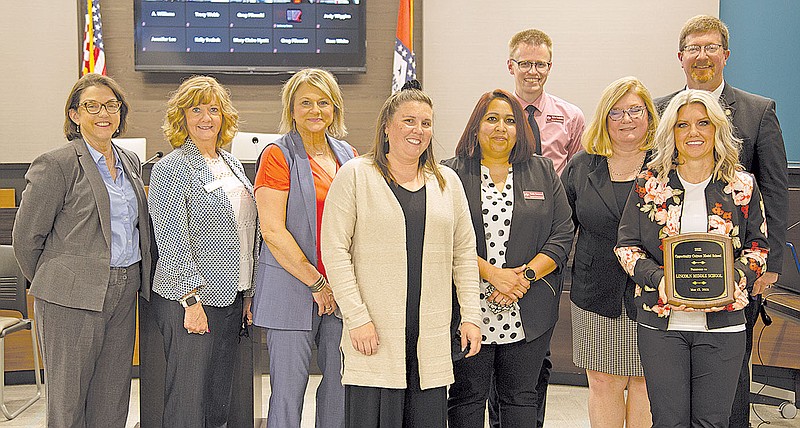LINCOLN -- Lincoln Middle School helped to pilot a new program during the 2019-20 school year, and for 2021, it has been named a model school for the program.
The Division of Elementary and Secondary Education with the state department of education recently announced that Lincoln Middle School and Forrest City Junior High School had both been named a 2021 Arkansas Opportunity Culture Model School for their efforts to "improve student access to a high-quality education by extending the reach of excellent teachers to more students."
In a news release about the awards, Johnny Key, education department secretary, said both schools "have demonstrated their commitment to the model and are seeing great success as a result. I congratulate the educators and administrators for a job well done."
The program is designed to help retain excellent teachers by providing them with extra pay for taking on more teaching responsibilities. It also gives teachers the opportunity to grow professionally and earn more pay without leaving the classroom.
Michele Price, Lincoln Middle School principal, said schools that use the Opportunity Culture model have the ability to set it up the way it works best in their building.
Lincoln Middle has three lead teachers, called multi-classroom leaders, and they are responsible for supporting the teachers and students in their grade-level classrooms. Lincoln's multi-classroom leaders are finishing their second year with the program and will continue in the same positions in 2021-22.
Yvette Townsend supports teachers and students in fourth and fifth grades. Tyler McBride is responsible for English and social studies teachers and students for sixth-eighth grades and also teaches eighth grade English for part of the day. Lindsay Bounds takes care of sixth to eighth grade math teachers and students.
The school also has "direct reach" teachers and "reach" associates, who are helping to teach and reach more students in the classroom.
As a multi-classroom leader, McBride said he is taking on a leadership role to train and mentor teachers and work with students. The lead teachers provide coaching and feedback to teachers, help them set goals and provide input on time management.
McBride noted that in education, the usual way to advance is to go back to college for a master's degree and specialized degrees.
"At some point in my future, I would like to move into administration, but I especially like teaching and want to be in the classroom," McBride said. "This was a step in between to get leadership experience and still be in the classroom."
The lead teachers said they've seen how the Opportunity Culture model has benefited the middle school.
Bounds said they meet one-on-one with their teachers, plan with the teachers and look at student data together.
"They feel heard," Bounds said. "Teachers want a school where they know someone is going to support them."
In addition, Bounds said teachers will bounce ideas off each other. One example, she said, is that when she observes or helps in a classroom, if she has an idea she will write it on a sticky note and leave that for the teacher.
Townsend added, "To grow the students, you have to grow the teachers."
McBride said he believes the program has improved the school culture overall because of one-on-one support for teachers and students. The lead teachers meet with their classroom teachers on a weekly basis and also are in the classrooms to help the students.
Price said school officials observed an Opportunity Culture school in North Carolina and decided to apply for the program.
Teachers had to apply for the lead positions, and the interview process was quite extensive. The interview committee, made up of district administrators and staff from the state education department, looked at how students performed under the teachers, considered their expertise in certain subject areas and gave the applicants open-ended questions. The candidates also had to write essays.
Price was not involved in the interviews but said it was nice that outside people validated the ones she would have selected for the positions.
Along with their classroom duties, the lead teachers also have quarterly meetings on the state level and Zoom with lead teachers in other states. Staff with the program on the state level visit the school annually to interview the lead teachers and other teachers at the school.
"We're scored on an elaborate rubric," Bounds said, noting the evaluation process helps lead teachers to see how they are doing and how they can improve.
"They are held accountable for the students, as well as the students," Price said about her multi-classroom leaders
Price said she meets weekly with her leadership team and meets one-on-one with her multi-classroom leaders.
"I support them," she said. "I couldn't do it without this team."
Arkansas adopted the Opportunity Culture School program in 2017.


